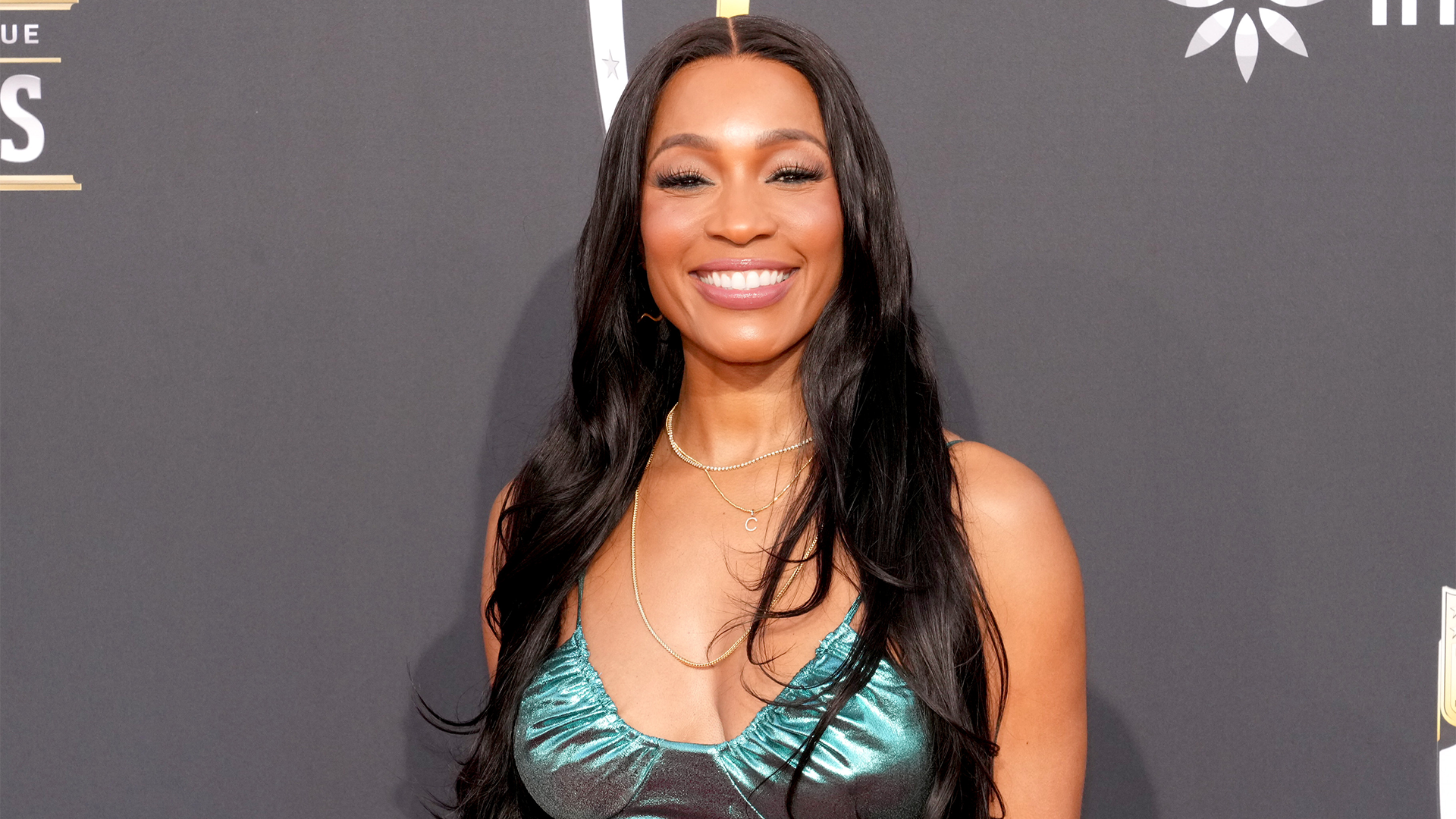Cari Champion has always been a certified go-getter.
So much so that before becoming an esteemed broadcast journalist and TV personality, Champion traveled across the country to pursue her dreams.
After interning at local news stations, working as an assignment editor at Channel 13, and sending her resume tape to countless companies, the Los Angeles, CA, native received a call from a news director in West Virginia about a job opening, she shared in a previous interview with radio show “The Breakfast Club.” Despite the long distance, Champion jumped at the opportunity.
“My checks might have been like $450 every two weeks,” Champion told the show. “I could’ve been working at a fast-food restaurant, making more money at the time. [The news director] he’s like, ‘We’ll give you the job. It’s a one-man band. You gotta shoot the camera yourself. You gotta edit everything yourself’… And I was like, ‘OK.’ That was it. And I packed up my Nissan Altima with whatever little things I had and drove across the country.”
Champion traveled for about five days to the West Virginia job. With her hustling spirit, she eventually became then host of sports channel ESPN’s “First Take” and co-anchor on the TV series “SportsCenter.”
From there, she created her mentorship program, Brown Girls Dream, to provide young Black and brown women with access and support as they trek on their own multimedia career paths.
In an interview with AFROTECH™, Champion explains that she created the program after recognizing the challenge people have finding time to fully commit to mentoring someone while juggling their own careers.
“I really truly thought, let’s create an informal mentorship program that didn’t make mentors feel obligated, but yet they could still reach out, connect others, help mentees find a little guidance, and offer some advice because it just wasn’t available when I was coming up,” Champion told AFROTECH™.
Since the launch of Brown Girls Dream in 2018, Champion has connected young women of color, ages 18 to 27, with cultural leaders such as marketing executive Bozoma Saint John, sports journalist Jemele Hill, and Nigerian–American author Luvvie Ajayi Jones. The connections made in the safe space have led to several mentees becoming Black women executives in sports.
“I want people to know there are other jobs outside of having a CEO or a COO [chief operations officer] title. You can still be an executive in whatever landscape that you are in,” Champion stated.
During the interview, Champion recalls one of her program’s mentees, Amadi Brooks. Coming out of college, Brooks wanted to work in a space where she could learn how to be an executive and entrepreneur. Champion’s program landed Brooks a job as an executive assistant to Serena Williams. At that time, she was able to work with the tennis champion and businesswoman on projects including advertising accounts with retail giants Nike and Gucci as well as shadowed her when she closed on business deals.
Within her time as Williams’ executive assistant, Brooks blossomed and had a vision for what she wanted to do next.
“She ultimately said, ‘Serena, I want to become one of the top stylists in sports for women. I want to know how to build my own company to do so,'” Champion shared.
She added, “Amadi was able to branch out on her own, and she now has a very successful business styling everyone in the WNBA, some folks in the NBA, and some on-air talent in the business. It’s the business that she created, but it was the relationship that she started with Serena that we [Brown Girls Dream] were able to provide.”
Champion knows firsthand what comes with being a “first” and being a minority in sports. With the launch of cable channel Vice TV’s “Cari & Jemele (Won’t) Stick to Sports,” she and Jemele Hill became the first Black women to host a late-night cable news and information show, per The Black Effect Podcast Network.
Champion is also known as one of the few Black women to work on ESPN. As the gap between Black women sports executives and their white men and women counterparts continues to gradually lessen, she has faith that things will progress even more for the next generation.
“I would love to see Black women in the C-suite that not only have the title but the power,” Champion expressed. “I have noticed that many of my friends, when they get to that C-suite position, they find that it’s difficult to maneuver because they’ve been hired to be seen and not heard.”
She added, “My hope would be that these Black women executives get into these positions of power and have the power to make the change and make the difference, not just be seen. I already see it happening.”
Champion continues to put her stake in the ground for Black women in the sports industry. Her work in sports includes hosting her podcast, “Naked with Cari Champion.” She also revealed to AFROTECH™ that she is working on a new project with a mission to “show that sports lives at the intersection of everything.”

